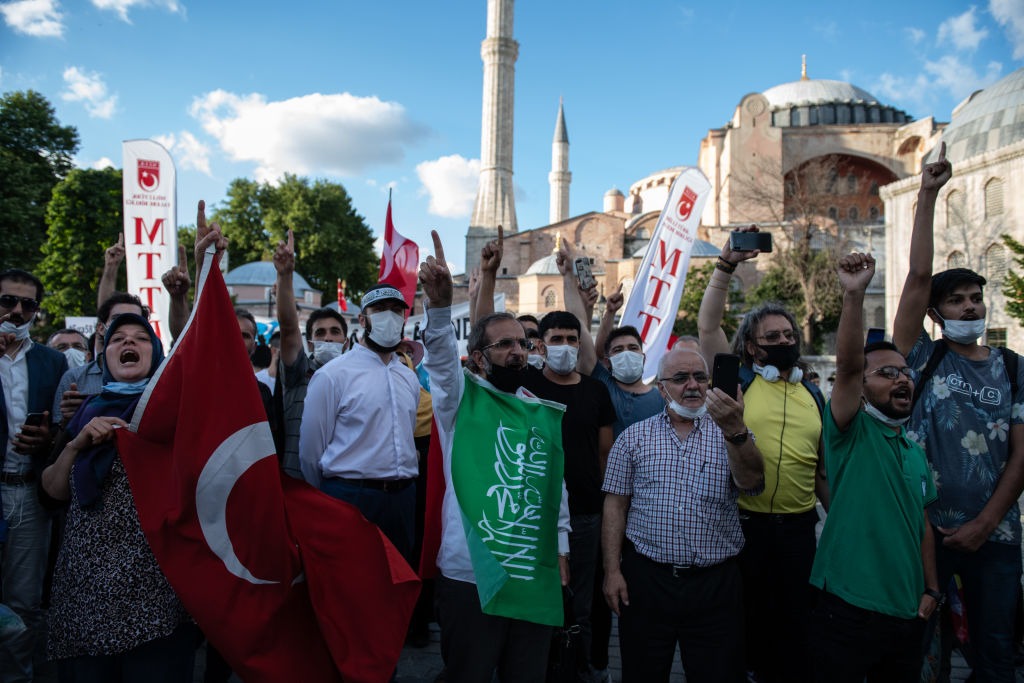ISTANBUL, TURKEY - JULY 10: People gather outside Istanbul's famous Hagia Sophia on July 10, 2020 in Istanbul, Turkey. Turkey's top administrative court ruled to annul a 1934 decree that turned the historic Hagia Sophia into a museum. The controversial ruling opens the way for the structure to be converted back into a mosque after 85 years. President Recep Tayyip Erdoğan handed over the iconic structure’s control to the country’s Religious Affairs Directorate following a court ruling revoking its status as a museum. President Erdogan said that the government will open Istanbul’s Hagia Sophia for worship on July 24. (Photo by Burak Kara/Getty Images) الإسلام في مواجهة الغرب: للأسف يبدو أن الصراع حتمي ولا مفر منه دريو جودفريدي/معهد كيتستون/23 تشرين الثاني/2023 (ترجمة موقع غوغل)
Islam vs. The West: Conflict Unfortunately Seems Inevitable Drieu Godefridi/Gatestone Institute/November 23, 2023 https://www.gatestoneinstitute.org/20173/islam-vs-west-conflict Picture enclosed: Islamists celebrate Turkish President Recep Tayyip Erdogan’s decree, converting the historic Hagia Sophia Christian cathedral once again into a mosque, outside Hagia Sophia in Istanbul, on July 10, 2020. (Photo by Burak Kara/Getty Images) الإسلام في مواجهة الغرب: للأسف يبدو أن الصراع حتمي ولا مفر منه دريو جودفريدي/معهد كيتستون/23 تشرين الثاني/2023 (ترجمة موقع غوغل) https://www.gatestoneinstitute.org/20173/islam-vs-west-conflict


